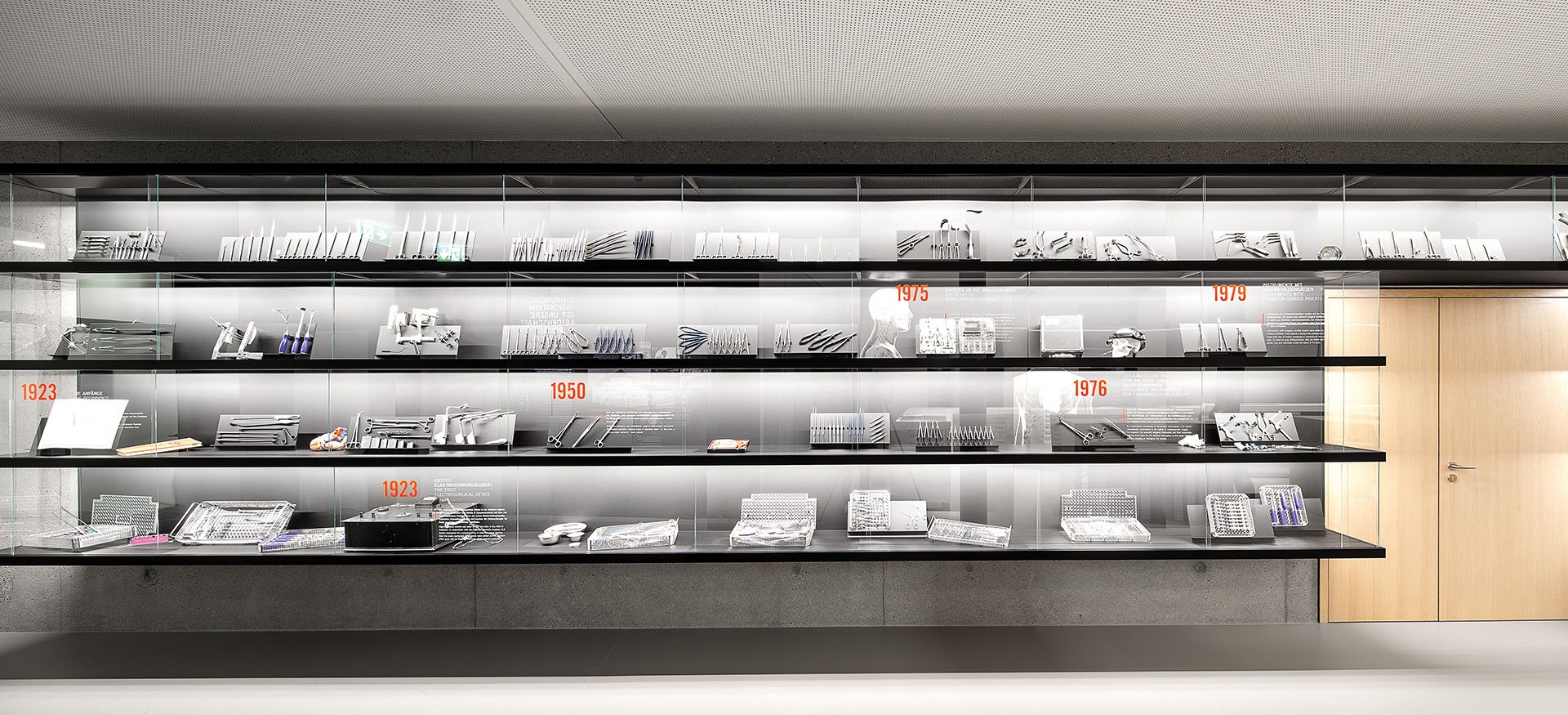Today 53-72% of operations are accompanied by background music. And this is no longer just to calm the patient, but also to support the OR staff in their performance. The introduction of music in the operating theater took place as early as 1914. There, Evan O'Neill Kane used music to reduce the patient's anxiety and the associated stress (Kane, 1914; Rastipisheh et al., 2019). After that, gramophones found their way into the operating room (British Medical Journal 1931, p. 108). The positive effects of playing music before and during an operation were a reduced release of cortisol, a reduced perception of pain, an optimized body relaxation and an accelerated healing process (Allen and Blascovich, 1994).
If music is played during operations, this also influences the performance of the surgical team. According to one study, which examined 23 scientific publications on the effect of music during surgical procedures on patients and surgical staff in recent years, the majority of the studies (17) reported positive effects (Rastipisheh et al., 2019). These include increased precision, relief of mental strain on the team, a shorter duration of individual surgical steps, greater focus and improved situational awareness, an increase in the ability to think and a lower stress level (Makama et al., 2010; Oomens et al., 2019; Ullmann et al., 2008).
In order for music to have its positive effect, the type of music, the volume and the surgeon's experience should be taken into account when deciding whether and which music should be played (Rastipisheh et al., 2019).
Especially for inexperienced surgeons, music can be distracting and thus negatively affect cognitive abilities (Miskovic et al., 2008).
According to the studies, the type of music that improves the performance of the team cannot be generalized (Allen and Blascovich, 1994; Oomens, 2019). The music should be selected individually according to the team's preferences. Not liking a certain genre can have a negative effect on performance. In addition to their own preferences, many surgeons also differentiate what music they want to listen to based on the type of procedure. For example, the streaming service Spotify includes playlists, which are named after the type of music, procedure, desired mood or surgical discipline: Surgery Rocks, Pop Surgery, Surgery Chill, Dental Surgery Music, Urologic Surgery (Spotify AB, 2019).
The volume of the music can also influence the performance of the team (Weldon et al. 2015, Way et al., 2013; Economist 2019). If it is set too high, critics see the danger of negatively affecting the team's communication during surgery. For example, one study found that the probability of repeated requests for a surgical instrument is five times higher than in operating rooms where there is no background music. The resulting impaired communication can lead to frustration within the team, increased surgery time and thus higher costs. For this reason, the volume level should be kept low.
If the above-mentioned aspects are critically considered when choosing music, nothing should stand in the way of its positive effects.
However, a few surgeons at Cardiff University Hospital strongly advise against playing the following songs (Bosanquet et al., 2014)
• "Another One Bites the Dust" (Queen, 1980)
• "Killer Queen" (1974)
• "Everybody Hurts" (REM, 1992)
• "Knives out" (Radiohead, 2001)
• "Scar Tissue" (Red Hot Chilli Peppers, 1999)
• "Hous of Pain" (Hip Hop Trio 1991-96)
Sources
Allen K, Blascovich J, 1994. Effects of music on cardiovascular reactivity among surgeons. JAMA 272, 882–884.
Bosanquet, D. C., Glasbey, J. CD., Chavez, R., 2014. Making music in the operating theatre. British Medical Journal (349).
British Medical Journal, 1931, 108.
Chung, B., Shen, J., Yang, P., Keheila, M., Abourbih, S., Khater, N., Hogue, P., Wong, A., Erskine, A., Kutzner, A., Ritchie, C., Cheriyan, S., Pierce, M., Ruckle, H., Baldwin, D., 2016. Comparison of three different auditory environments and their effect upon training in novice robotic surgeons. Journal of endourology/endourological society (30).
Economist, 2019. What might a doctor listen to? [online] https://www.economist.com/prospero/2019/11/20/what-might-a-doctor-listen-to-during-surgery [19.12.2019].
Makama, J., Ameh, E., Eguma, S., 2010. Music in the operating theatre: opinions of staff and patients of a Nigerian teaching hospital. African Health Sciences 10 (4), 386–389.
Miskovic, D., Rosenthal, R., Zingg, U., Oertli, D., Metzger, U., Jancke, L., 2008. Randomized controlled trial investigating the effect of music on the virtual reality laparoscopic learning performance of novice surgeons. Surgical Endoscopy 22 (11), 2416–2420.
Oomens, P., Xing F, V., Kleinrensink, G. J., Jeekel, J., 2019. The effect of music on simulated surgical performance: a systematic review. Surgical Endoscopy 33 (9), 2774–2784.
Rastipisheh, P, Taheri, S., Maghsoudi, A., Razeghi, M., Choobineh, A., Kazemi, R., 2019.- The Effects of Playing Music During Surgery on the Performance of the Surgical Team: A Systematic Review on Published Studies. In: Bagnara S., Tartaglia R., Albolino S., Alexander T., Fujita Y. (eds) Proceedings of the 20th Congress of the International Ergonomics Association (IEA 2018). IEA 2018. Advances in Intelligent Systems and Computing ( 827).
Spotify AB, 2019. Playlist results for the search term “surgery” [online] https://open.spotify.com/search/surgery/playlists [19.12.2019].
Ullmann, Y., Fodor, L., Schwarzberg, I., Carmi, N., Ullmann, A., Ramon, Y., 2008. The sounds of music in the operating room. Injury 39 (5), 592–597.
Way, TJ., Long, A., Weihing, J., Ritchie, R., Jones, R., Bush, M., et al, 2013. Effect of noise on auditory processing in the operating room. Journal of the American College of Surgeons 216 (5), 933–938.
Weldon, S.,Korkiakangas, T., Bezemer, J., 2015. Music and communication in the operating theatre. Journal of Advanced Nursing (71).



